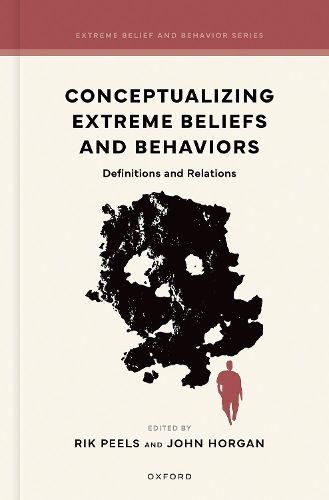Readings Newsletter
Become a Readings Member to make your shopping experience even easier.
Sign in or sign up for free!
You’re not far away from qualifying for FREE standard shipping within Australia
You’ve qualified for FREE standard shipping within Australia
The cart is loading…






Concepts like extremism and radicalization are highly contested. Their definitions matter, because they influence how we study extremism and radicalization and, in the long run, how these are perceived in the public debate. Rather than adding more definitions, this book explores the underlying challenging conceptual issues in defining, interpreting, and operationalizing notions such as extremism, radicalization, fanaticism, and terrorism. It explores four crucial questions. First, how should each of these extreme phenomena be defined, and what are the desiderata in seeking definitions of each of them? Second, how should the project of defining and conceptualizing these phenomena be undertaken: in terms of necessary and sufficient conditions, or family resemblances, or common understandings in the public debate, or something else? Third, what is the role of normativity in defining these extreme phenomena, that is, the proper place of normative or even pejorative concepts and the normative framework of the researcher? Fourth and finally, how do the phenomena of extremism, fanaticism, fundamentalism, terrorism, and conspiracism relate to one another and to things such as apocalypticism, nationalism, cults, charisma, and state terror? Written by global, multidisciplinary experts, this text lays the conceptual groundwork that the other volumes in the Extreme Belief and Behavior Series will build on.
$9.00 standard shipping within Australia
FREE standard shipping within Australia for orders over $100.00
Express & International shipping calculated at checkout
Stock availability can be subject to change without notice. We recommend calling the shop or contacting our online team to check availability of low stock items. Please see our Shopping Online page for more details.
Concepts like extremism and radicalization are highly contested. Their definitions matter, because they influence how we study extremism and radicalization and, in the long run, how these are perceived in the public debate. Rather than adding more definitions, this book explores the underlying challenging conceptual issues in defining, interpreting, and operationalizing notions such as extremism, radicalization, fanaticism, and terrorism. It explores four crucial questions. First, how should each of these extreme phenomena be defined, and what are the desiderata in seeking definitions of each of them? Second, how should the project of defining and conceptualizing these phenomena be undertaken: in terms of necessary and sufficient conditions, or family resemblances, or common understandings in the public debate, or something else? Third, what is the role of normativity in defining these extreme phenomena, that is, the proper place of normative or even pejorative concepts and the normative framework of the researcher? Fourth and finally, how do the phenomena of extremism, fanaticism, fundamentalism, terrorism, and conspiracism relate to one another and to things such as apocalypticism, nationalism, cults, charisma, and state terror? Written by global, multidisciplinary experts, this text lays the conceptual groundwork that the other volumes in the Extreme Belief and Behavior Series will build on.